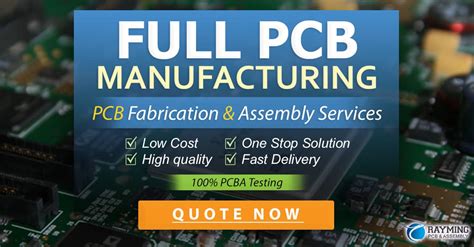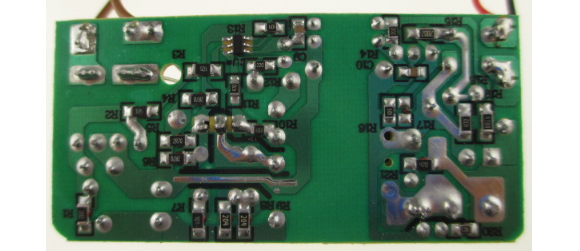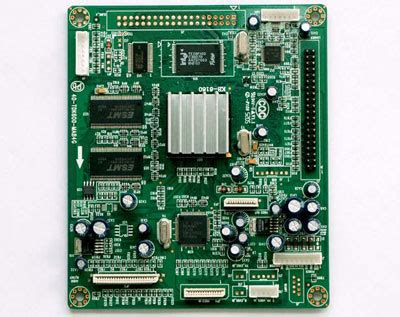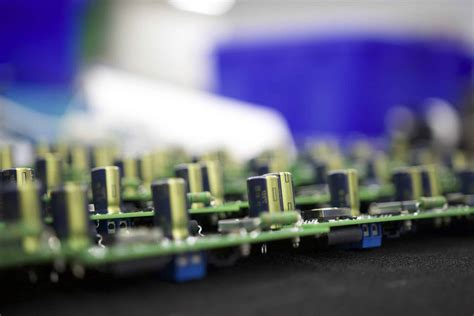Innovative Solutions in PCB Contract Manufacturing for Modern Electronics
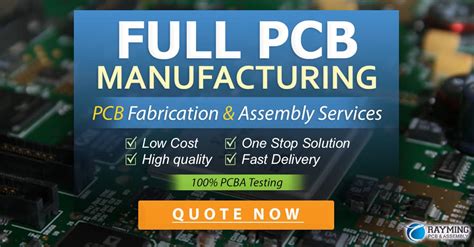
Key Takeaways
Understanding the landscape of PCB contract manufacturing is essential for anyone involved in the electronics industry. You may find that the pcb manufacturing cost varies significantly based on several factors, including materials used, complexity of the design, and the scale of production. As you engage with various pcb manufacturing companies, it’s important to assess their capabilities in implementing innovative solutions that enhance production quality and efficiency. The evolution of technology within this sector means that your choice of a pcb manufacturing business can impact not just costs but also long-term performance and sustainability. Emphasizing continuous improvement and quality control measures will ensure that your projects meet industry standards while adapting to emerging trends. This approach not only addresses present challenges but also positions you for future success in a competitive landscape. For more insights into advanced techniques in pcb manufacturing, do visit Andwin PCB.

The Evolution of PCB Contract Manufacturing: A Historical Perspective
The journey of PCB contract manufacturing has shaped the landscape of modern electronics. Initially, the process was labor-intensive, relying heavily on manual assembly and rudimentary techniques. As the demand for electronics grew, so did the need for efficient pcb manufacturing processes. This marked a pivotal shift where pcb manufacturing companies began adopting automated equipment to streamline assembly lines and reduce labor costs.
Historically, this evolution was marked by several key developments. The introduction of surface mount technology (SMT) in the 1980s transformed how electronic components were placed on PCBs, resulting in higher density circuit designs and improved performance. This shift not only lowered pcb manufacturing costs but also enhanced overall product quality.
Moreover, technological advancements in materials played a crucial role in this evolution. Innovations such as high-frequency laminates and lead-free solder materials have emerged to meet environmental standards while improving durability and performance. In fact, as the industry has transitioned towards more sustainable practices, you’ll find that many modern pcb manufacturing business models emphasize eco-friendly materials without compromising efficiency.
"Staying ahead in PCB contract manufacturing requires embracing new technologies that cater to evolving market demands."
To give a sense of what this evolution looks like over time, consider the following table outlining key milestones:
| Year | Milestone | Impact |
|---|---|---|
| 1960s | Manual assembly | High labor costs; slow production |
| 1980s | Introduction of SMT | Increased density; improved speed |
| 2000s | Rise of automation | Reduced costs; better quality control |
| 2020s | Focus on sustainability | Eco-friendly methods; alignment with regulations |
As you navigate through this evolving landscape, understanding these historical shifts will better equip you to make informed decisions regarding your pcb contract manufacturing needs today.
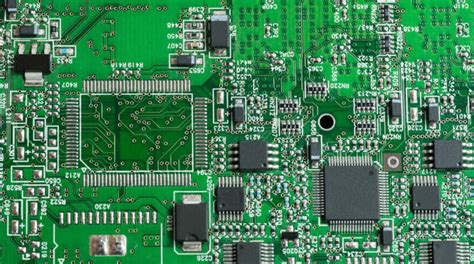
Key Technologies Revolutionizing PCB Production Efficiency
In the realm of PCB manufacturing, several groundbreaking technologies are significantly enhancing production efficiency. One of the most impactful advancements is the integration of automation, which streamlines processes by reducing manual intervention. This not only decreases the likelihood of human error but also accelerates production cycles. Furthermore, pcb manufacturing companies are increasingly adopting advanced software solutions for design and routing, allowing for more precise and optimized layouts. This leads to a reduction in pcb manufacturing costs while improving overall product quality.
Additionally, smart factories equipped with Internet of Things (IoT) capabilities enable real-time monitoring and data analysis, facilitating proactive decision-making that can further boost efficiency. These technologies collectively support a dynamic production environment, where customization becomes seamlessly attainable—addressing the unique requirements of diverse markets. As you explore pcb manufacturing business strategies, recognizing the importance of these cutting-edge technologies will be essential for staying competitive in a rapidly evolving industry landscape. With continued innovation at play, these advancements are setting new benchmarks in quality and efficiency within PCB contract manufacturing.
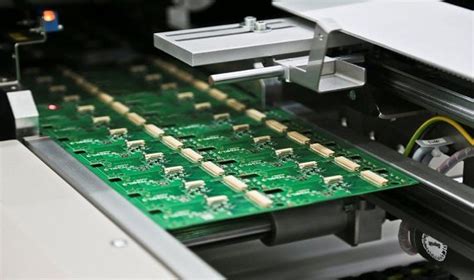
Innovative Materials in PCB Manufacturing: Enhancing Performance and Sustainability
The landscape of PCB manufacturing is rapidly evolving, driven by the need for materials that not only enhance performance but also support sustainability. You may find that innovative materials are becoming central to how PCB manufacturing companies approach their production processes. For instance, advanced substrates like polyimide and thermoplastics are increasingly being used due to their exceptional thermal stability and flexibility, making them ideal for high-performance applications. Furthermore, the integration of environmentally friendly materials is gaining traction as companies strive to reduce their ecological footprint. This shift not only reflects a growing consumer demand for sustainable practices but also addresses regulatory challenges regarding waste and emissions. As you evaluate the PCB manufacturing cost, consider how these innovative materials may lead to long-term savings by improving product reliability and longevity, thereby reducing overall waste. It’s essential to note that the choice of materials can significantly impact your PCB manufacturing business, influencing both production efficiency and product quality. By embracing these new materials, you enhance your competitive edge while contributing positively to the environment—ultimately meeting the diverse needs of today’s technology-driven world.
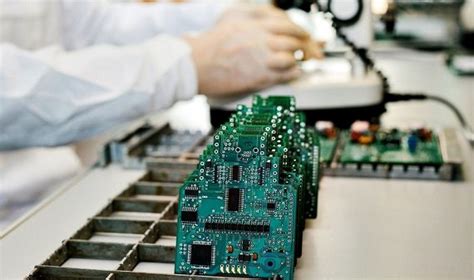
Automation and Robotics in PCB Assembly: Transforming the Workflow
In today’s fast-paced electronics landscape, automation and robotics are fundamentally changing the way PCB manufacturing occurs. By integrating sophisticated technologies, you can enhance productivity and precision in your assemblies. PCB manufacturing companies are increasingly adopting automated solutions to streamline their processes, resulting in reduced cycle times and increased throughput. This shift not only minimizes human error but also ensures high-quality standards are consistently met. As a stakeholder in the pcb manufacturing business, understanding the benefits of robotics can help you optimize your workflow. For instance, automated pick-and-place machines precisely position components on boards, while robotic soldering systems guarantee consistent application of solder with minimal defects, ultimately lowering your overall pcb manufacturing cost. Embracing these innovations not only drives efficiency but also positions your operation to meet the growing demands of a tech-savvy market and expands your capability to handle complex designs with ease. As these technologies evolve, staying ahead of the curve will be essential for maintaining competitiveness in the rapidly changing field of electronics production.
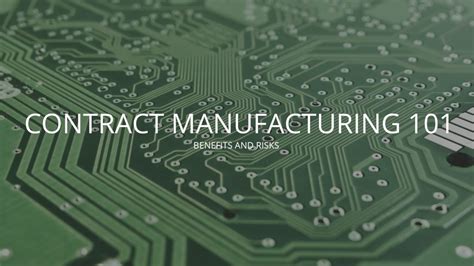
Quality Control Measures in PCB Contract Manufacturing: Ensuring Excellence
In the realm of PCB contract manufacturing, the significance of quality control cannot be overstated. To thrive in a competitive marketplace, PCB manufacturing companies must implement rigorous quality assurance measures that not only guarantee the final product’s reliability but also enhance overall production efficiency. You may find that utilizing advanced inspection techniques—such as Automated Optical Inspection (AOI) and X-ray inspection—plays a critical role in identifying defects at various stages of production. By integrating these technologies, you can significantly reduce errors that might arise during the assembly or printing processes.
Moreover, establishing a robust quality management system will help you monitor every aspect of your PCB manufacturing business, from raw material selection to final testing, ensuring that your end products meet industry standards. It’s essential to maintain consistent communication with suppliers and remain vigilant regarding PCB manufacturing costs, as fluctuations can affect material quality. Investing in training programs for your workforce can also contribute to higher quality standards, equipping them with the knowledge to recognize and rectify potential issues before they escalate.
Ultimately, implementing these quality control measures within your PCB manufacturing operations not only assures excellence but also fosters trust among your clients, setting you apart in a rapidly evolving technological landscape. By focusing on integrity and precision in production, you position yourself as a leader in the industry while paving the way for future innovations in electronics.
Customization in PCB Design: Meeting Diverse Industry Needs
In the dynamic landscape of pcb manufacturing, customization plays a pivotal role in addressing the unique demands of various industries. As you navigate through the offerings of pcb manufacturing companies, you’ll find that tailored designs are increasingly essential to meet specific functionalities and regulatory requirements. For instance, industries such as telecommunications, automotive, and consumer electronics often require specialized configurations to enhance product performance and reliability. The flexibility in pcb manufacturing process allows you to select materials and layouts that align with both your technical specifications and budget considerations, directly impacting the overall pcb manufacturing cost. By investing in customized solutions, your products can achieve superior quality and efficiency, setting you apart in a competitive market. As the pcb manufacturing business evolves, understanding the importance of customization not only fosters innovation but also ensures that your design accommodates future advancements and scalability within your operations. Embracing this tailored approach will ultimately accelerate your success in delivering cutting-edge electronic solutions.
Addressing Challenges in PCB Production: Strategies for Success
In today’s competitive landscape, pcb manufacturing faces numerous challenges that can impact overall productivity and profitability. To navigate these complexities, you must implement effective strategies that enhance operational efficiency and maintain high-quality standards. One of the primary challenges revolves around pcb manufacturing costs. Companies often struggle to balance cost with quality, requiring a nuanced understanding of the marketplace. Working closely with pcb manufacturing companies can offer insights into optimizing processes without sacrificing performance. You should also consider adopting innovative technologies that streamline production workflows, allowing for faster turnaround times while minimizing waste. Another critical aspect is customization; as client demands evolve, ensuring your pcb manufacturing business can quickly adapt to these changes is key to staying relevant. Investing in training your workforce is crucial as well, as a skilled team will be more adept at troubleshooting issues and implementing new techniques swiftly. Ultimately, fostering an environment focused on continuous improvement and leveraging state-of-the-art tools will empower you to tackle challenges head-on and thrive in the dynamic world of pcb manufacturing.
The Future of PCB Contract Manufacturing: Trends and Predictions
As industries continue to evolve, the pcb manufacturing landscape is poised for significant transformation. The emergence of smart technologies and the demand for high-performance electronic devices are driving pcb manufacturing companies to explore innovative strategies that optimize production processes. You may notice a growing inclination towards automation, where robots and intelligent systems are streamlining workflows, leading to both increased efficiency and reduced labor costs. This shift not only impacts the pcb manufacturing cost, but also enhances the precision and quality of products produced.
With sustainability becoming a focal point across various sectors, many pcb manufacturing businesses are integrating environmentally friendly practices in their processes. By utilizing renewable materials and improving energy efficiency, they not only comply with regulations but also appeal to environmentally conscious consumers. Furthermore, advancements in design software allow for greater customization, ensuring you receive products tailored to your specific requirements.
In anticipation of future trends, it’s essential for you to stay informed about emerging technologies like 3D printing, which could redefine traditional production methods. Such innovations promise not only to reduce costs but also to accelerate time-to-market—a critical factor in today’s fast-paced electronics sector. As the landscape continues to shift, your understanding of these trends will be crucial in navigating the increasingly competitive realm of PCB contract manufacturing.
Conclusion
In the rapidly evolving landscape of pcb manufacturing, the significance of pcb contract manufacturing has become increasingly clear. As you delve into the latest advancements, you’ll find that today’s manufacturers are embracing innovative techniques and technologies designed to enhance overall efficiency. By adopting automation and integrating cutting-edge quality control measures, pcb manufacturing companies are elevating their capabilities, ensuring that your products meet the highest standards. Moreover, with a growing emphasis on customization, these companies are adept at tailoring solutions to meet diverse industry needs without escalating the pcb manufacturing cost. As you consider entering this pcb manufacturing business, it’s essential to recognize how these innovative solutions not only address current challenges but also pave the way for future progress in electronic production. Embracing these advancements not only satisfies market demands but also positions your endeavors for long-term success in a competitive environment.
FAQs
What is PCB contract manufacturing?
PCB contract manufacturing refers to the process where specialized pcb manufacturing companies are contracted to produce printed circuit boards (PCBs) for other businesses. This approach allows companies to leverage expertise and resources without investing heavily in their own production capabilities.
How does PCB manufacturing impact my business?
Utilizing pcb manufacturing services can significantly enhance your production capacity and efficiency. By outsourcing, you can reduce pcb manufacturing costs and focus on your core business while benefiting from the advanced technologies and approaches that professional manufacturers offer.
What should I consider when choosing a PCB manufacturer?
When selecting a vendor, consider their experience in the pcb manufacturing business, quality control measures, materials used, customization options, and turnaround times. Assessing their capabilities will ensure they align with your specific project needs.
How can innovative techniques improve PCB production?
Innovative techniques in pcb design and assembly, including automation and improved materials, can lead to greater efficiency, reduced waste, and better performance. These advancements meet the growing demands of modern electronics while maintaining high standards of quality.
What are the benefits of customization in PCB manufacturing?
Customization allows you to tailor PCBs specifically for your unique requirements, enhancing functionality and integration into your electronic systems. This can be crucial for industries that require specialized designs or dimensions.
For more information on pcb manufacturing solutions that fit your needs, please click here: AndwinPCB – PCB Manufacturing

